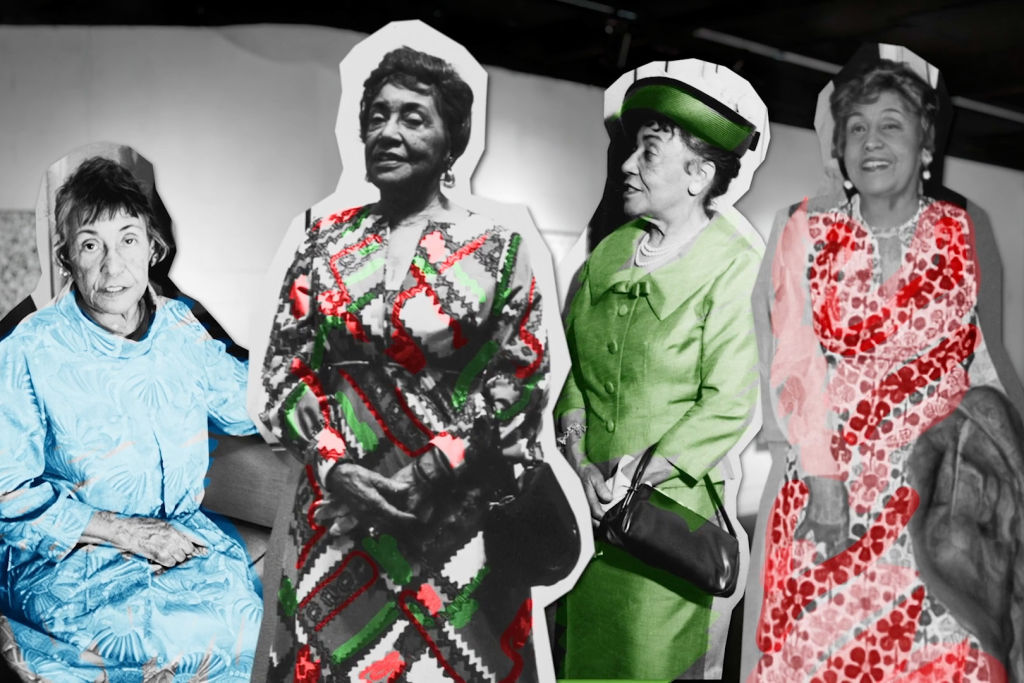Culture
 “Miss Alma Thomas: A Life in Color.” Photo courtesy of DC Shorts.
“Miss Alma Thomas: A Life in Color.” Photo courtesy of DC Shorts.
The DC Shorts Festival Is Back + Timelier Than Ever
September 10, 2021 @ 2:00pm
DC Shorts International Film Festival is back. After going virtual in 2020, the 2021 hybrid festival is their 18th annual event. Executive Director Peter Morgan couldn’t be more ready for its return.
“We all sat down and talked about how we could safely provide screenings to the community,” Morgan says. “Now we can open up the doors, and we’re available for the community to show up depending on their comfort level with safety precautions.”
This year’s film festival features 95 short films, 18 online showcases and seven total in-person showcases across multiple venues. Vaccine checks and mask mandates will also be part of safety precautions throughout the entire festival.
DC Shorts’ return is a triumph for local creatives, whether they’re filmmakers or film-lovers. The brainchild of Founders Jon Gann and Gene Cowan, DC Shorts is a festival which prides itself on putting the creator first.
“I really did not like festivals that were about parties, money and sponsors, but weren’t about films and filmmakers,” Gann told us. “And they were especially not about short filmmakers.”
Gann, who left his job at a marketing and advertising firm to pursue a career in film, is fiercely protective of the genre.
“Short filmmakers are the ones getting the shaft at most festivals,” Gann says. “They [aren’t] getting the promotion, they [aren’t] getting anything else because they [are] the filler. I’m like, these stories are better!”
Films shown at DC Shorts’ festival have notoriously gone on to win or be nominated for accolades worldwide. Awards aside, DC Shorts has tirelessly worked since 2003 to democratize filmmaking and empower diverse voices to be heard from around the globe, as told in their mission statement. The festival itself is a D.C. institution in the arts, with a special lineup of DMV-based films and filmmakers offering electrifying new perspectives on life in the District.
Three DMV filmmakers and films will be spotlighted this Friday, Sept. 10, under the category “Homegrown Showcase.” Local films include “Miss Alma Thomas: A Life in Color” about legendary D.C. artist Alma Thomas; “Ourselves, in Stories” about a community elevating marginalized voices from within; and “Oversight,” a foray into the history of D.C.’s Office of Inspector General, founded in the 1970s.
“Oversight” is the latest project from filmmakers Michael Skinner and Jon Michael Shink of Pendragwn Productions. The film is both an explorative documentary into one of D.C. ‘s lesser known and appreciated offices — the Inspector General’s office — and an impassioned case for D.C. statehood.
“One of the criticisms that’s often levied against statehood is, ‘How can we possibly trust these people to govern themselves?’” Michael Skinner says. “This film is a look at the last 40 years [and] how D.C. learned how to govern itself. It’s the sort of proof that D.C. is able to deal with corruption and fraud, when it appears, and is able to handle its finances responsibly.”
“This is our city,” Jon Michael Shink adds. “We take great pride in being able to tell stories about D.C.”
Pendragwn has also produced documentaries ranging in topic from the fight for solar power in D.C.’s low-income neighborhoods, to urban development and equity in Anacostia. Their films serve as an open love letter to the city.
Also headlining the Homegrown Showcase is “Miss Alma Thomas: A Life in Color” by Cheri Gaulke. In this piece of feminist scholarship, filmmaker Cheri Gaulke brings the story of one of D.C.’s best kept artistic secrets to life: Miss Alma.
“It’s so appropriate to show this film in D.C., because the city is the place where Alma Thomas got to be the person she wanted to be,” Gaulke says.
A Howard alumna, schoolteacher and the first woman of color to have a solo exhibit at the Whitney Museum of American Art and the Corcoran Gallery of Art, Alma Thomas was a D.C. treasure. Gaulke’s documentary discusses Thomas’s staunch refusal to let race stand in the way of her achievement.
“There was a famous artist we wanted in the film, and it fell through,” Gann says. “But interviewing him, he made the comment that Alma was the only person who could cross 16th Street, which struck me as something really major. 16th Street, for many years, was the dividing line between white and Black Washington. I think that’s really indicative of her power as an artist and a community member.”
The DC Shorts’ International Film Festival kicks off with this Friday, Sept.10 at 6 p.m. at the Goethe-Institut Washington. The festival runs through Tuesday in partnership with JxJ Theatre and Edlavitch Jewish Community Center of Washington, D.C. and includes abundant LGBTQ and Animation categories, as well as several filmmaking workshops and panel discussions.
To learn more about the DC Shorts International Film Festival, visit dcshorts.com or follow it on Instagram @dcshorts.
Goethe-Institut Washington: 1377 R St. NW, DC; goethe.de/ins/us/en/sta/wsh.html // @goethe_dc
Edlavitch Jewish Community Center of Washington, D.C. (EDCJCC): 1529 16th St. NW, DC; edcjcc.org // @e_dcjcc
Enjoy this piece? Consider becoming a member for access to our premium digital content. Support local journalism and start your membership today.







